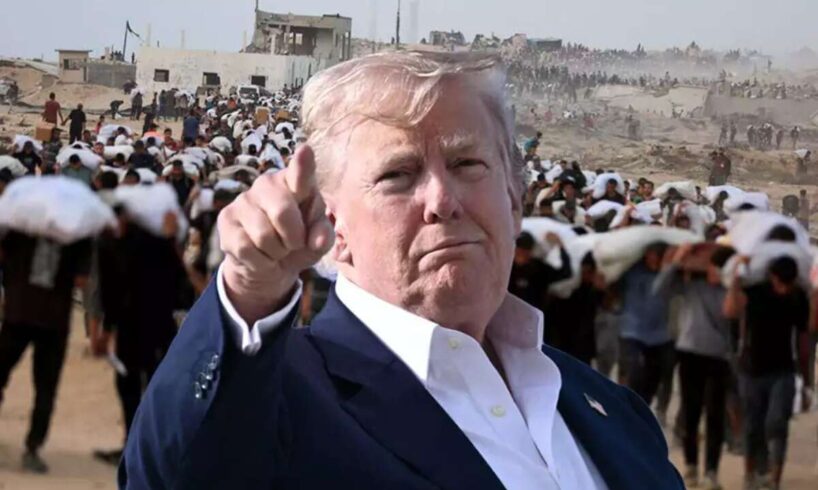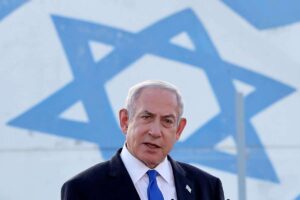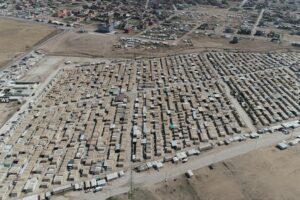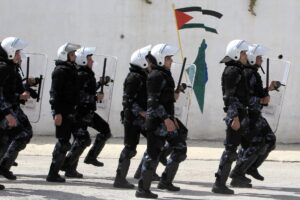
The international plan to rebuild the Gaza Strip, first reported by Israel Hayom, was at the center of discussions US President Donald Trump convened at the White House on Wednesday. American sources confirmed that detailed proposals were presented at the meeting, outlining responsibilities for organizations and countries expected to take part in the project.
The meeting followed hearings in congressional foreign affairs committees, where representatives of the organizations laid out their plans. During the White House discussion, Trump approved advancing some of the projects in the near future, including initiatives in education, food supply and temporary housing.
Palestinians with humanitarian aid in the Gaza Strip. Photo: AFP AFP
The program is set to be implemented even if fighting continues, in southern Gaza where the IDF maintain control and relative calm. IDF Arabic-language spokesman Lt. Col. Avichay Adraee announced that large open areas there would serve as sites for new humanitarian zones. International organizations, with international funding, would begin direct assistance to the population in those areas.
Assessments presented in the discussion noted that the chances of a ceasefire before Israeli forces enter the remaining neighborhoods of Gaza City are slim. Still, according to sources, Trump expressed hope that a full conquest could be avoided and an agreement reached beforehand.
IDF forces during Operation Gideon’s Chariots. Photo: IDF Spokesperson’s Unit
American sources said the White House meeting included representatives of the Defense Department and the State Department, along with international organizations expected to be part of the reconstruction efforts and Israeli officials. Former British Prime Minister Tony Blair, who is involved in coordinating the international rehabilitation process, also took part.
In Washington, Strategic Affairs Minister Ron Dermer, who manages Israel’s ties with the administration, and Foreign Minister Gideon Sa’ar, who met with US Secretary of State Marco Rubio, are both on hand. Dermer reportedly met with several participants in the White House session to present Israel’s position: advancing humanitarian relief for Gaza’s residents but without involvement from Hamas or the Palestinian Authority. Israel is also demanding to retain security control in the territory.
The White House discussions are taking place alongside renewed efforts to reach a ceasefire agreement. As part of those contacts, American representatives raised the entry of international organizations to assist the civilian population and even the possibility of multinational forces deploying in areas the IDF withdraws from.
Hamas continues to insist on only a partial deal that preserves its control of Gaza. However, signs are growing in the Strip that the Islamist terrorist organization is losing its grip, as local clans take over food trucks and keep supplies for themselves, with decreasing fear of Hamas’ reaction.
Steve Witkoff Reuters
US envoy Steve Witkoff said in an interview that Hamas has signaled willingness to consider an arrangement and that Israel also wants to continue negotiations to end the war and secure the release of hostages. “We suggested Hamas make gestures, such as providing food to the hostages or allowing the Red Cross to visit them,” Witkoff said.
Hamas responded that it would agree to transfer medicine and food to the hostages but conditioned this on improving conditions for imprisoned terrorists in Israel.
On Sunday, the Diplomatic-Security Cabinet will convene in Jerusalem, where Prime Minister Benjamin Netanyahu and Dermer will present the current situation, though it is doubtful that significant decisions will be made.





